Greetings, everyone!
Well, 2022 is off to an exciting start, isn’t it? There are a lot of questions about what the future holds for travel nursing as we know it. We’re not experts in everything, but our history and tenure in the industry mean we do know a lot about staffing and needs. By all accounts, the future looks very bright for travel nursing. And while we strongly feel that to be true, we still think it’s important to discuss how to adjust to a changing job market.
First off, a bit of good news though, according to the data tracked by The New York Times, as reported by Becker’s Hospital Review, COVID-19 cases are decreasing in almost every state! We’re not the only ones who have noticed though. We’ve seen questions surface about disaster relief nursing, crisis, and deployment.
It’s a good news/bad news situation here so buckle in. Good news is the number of open travel jobs has stayed relatively consistent. Nurses are needed and have always been needed. This will not change. Bad news is, for some, there has been a shift in which specialties and skills are in demand as the market fluctuates back to “normal” times.
Consistently, there are openings for critical care, emergency care, medical/surgical, and transitional care RNs. Okay, so we’re golden…right? Well, the number of candidates looking to fill these positions has also increased. This means more competition and a longer turnaround from the time candidates start looking for a job and when they actually secure one. Again, we can’t predict the future, and we’ve been here before just to see needs spike back up, but this is what current data is telling us.
For our surgical and special procedures clinicians (Operating Room, Endoscopy, Interventional Radiology, Cath Lab, etc.), we’ve actually seen a rise in demand in recent months. If you’re a nurse with conscious sedation skills, recovery skills, and strong IV skills, struggling to lock down a position, let our recruiters know. We have long standing, direct relationships with some unit managers willing to cross-train travelers into a new specialty with a specific set of skills. You’ll be interviewed by the manager so you can discuss expectations, review your skills, and ensure you have a successful assignment while learning something new to take to the next.
Check out more of our recent blog posts!
Okay, okay, we’ve talked about openings, but the big elephant in the room has a huge dollar sign tattooed on his side. Where are travelers being compensated the most? Well, honestly, it depends. Doing what we do, we’ve found “the most” is a relative term. Healthcare professionals choose to travel for a variety of reasons. Some put more value in being a day’s drive from home, some want to be able to improve their resumes, and yes, some are looking for opportunities to finance the next step in their career (we’re looking at you NP and CRNA candidates, woo, good luck)!
It’s prudent to find a recruiter that you can openly discuss your goals with. Be honest and be ready to sometimes hear some bad news. Not every contract will be your ideal, but hopefully most will meet most of your needs. So as the market shifts, what can you do to ensure your goals are met?

The competition will be a little tighter for a while.
It bears mentioning again, there are a lot of candidates vying for the same jobs right now. Based on our recruitment activity and outcomes, if you’re not submitted within 24 hours of a job opening, chances are low you’ll meet the threshold to be seen and reviewed by a manager for an interview or offer.
Flexibility will be (and always has been) key for landing consistent assignments.
Being flexible with location, shift, schedule, floating, etc., is always going to ensure that you have an abundant number of options to choose from. It is especially beneficial now when the market is more competitive. Of course, not everyone can be flexible with everything, which is understandable. If you have to be firm on location or shift, for example, try to be flexible with your other criteria to ensure that you can find a position quickly and easily.
Submit to job openings more quickly and (possibly) more often.
If you’ve bought a house, thought about buying a house, or follow “mortgagetok” on Tik Tok, you might be familiar with what we’re putting down (hah, get it? down…down payment? ok I’ll stop). It’s a numbers game right now. Submit and submit often. Work with your recruiter to determine the absolute must-haves in your assignment, as they can offer you other suggestions that meet your criteria.
Also worth a mention, this industry is very cyclical. Travelers flood the market in January, after the holidays, meaning their 13-week contracts are up in April. January, April, July, and September are always the most competitive months with the most candidates. If you have a desired start date in these months, our chances of catching a contract are higher when we’re one of the first to submit you to a job opening. If you’re able start/extend/work outside of these months, that’ll help tremendously.

I’ve been in the industry a long time. I have seen this market change a lot and it continues to change. Your best bet is to find an ally in a recruiter equipped to navigate this terrain. There are still a lot of jobs to fill, and a lot of mornings you can wake up in a new and exciting place! If you’re ready to see the country and achieve more of your personal goals, travel nursing is still a great way to do exactly that!
Ready to start your next gig? Apply today!
"*" indicates required fields
- Charity Recommends Glacier National Park - June 21, 2024
- Should I Extend My Travel Nurse Assignment? - November 23, 2022
- Axis Recommends – New River Gorge National Park - September 2, 2022


